Almond Flour Vs. Coconut Flour: Nutrition & Health Benefits
Consider the differences between these two flours to understand what your body requires.
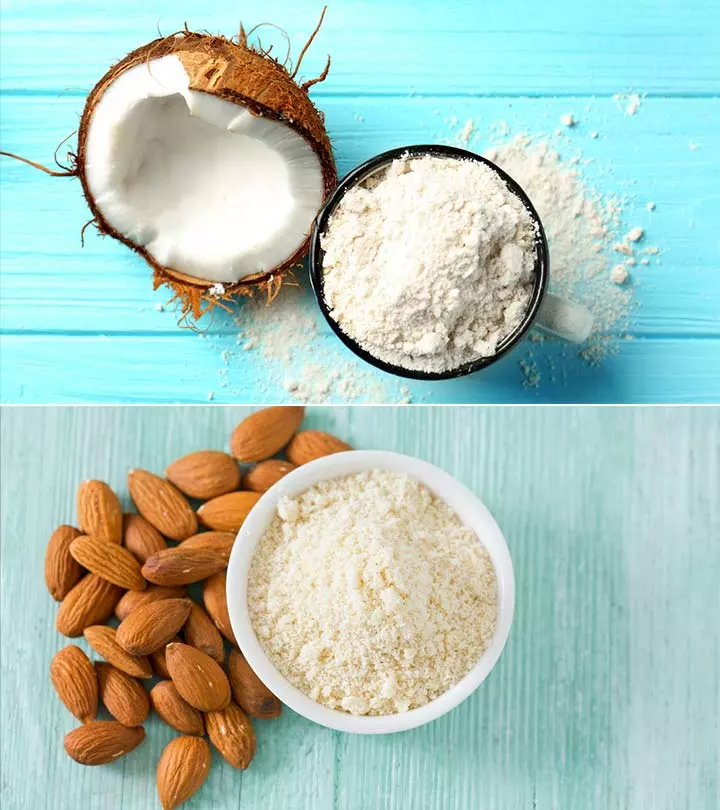
Image: Shutterstock
If you are on a low-carb or keto diet, you know that regular flours will not support your weight loss journey. Both almond and coconut flours are gluten-free and are the best alternatives to regular flour. But what are the differences between almond flour and coconut flour? Which of the two could be the better choice for you? This article answers these questions in detail. Keep reading.
In This Article
Coconut Flour Vs. Almond Flour: What They Are And How They Are Made?
Coconut flour is made from coconut pomace that is left over after making coconut milk. This pomace is then dried at low temperatures. After the pomace is completely dry, it is ground into a fine powder and used as coconut flour. This flour was originally discovered in the Philippines as a by-product of coconut milk. This flour has the same flavor and taste as that of coconuts.
Almond flour is made from ground almonds. To make this flour, almonds are blanched in boiling water so that their skin can be easily peeled off. Once this is done, the almonds are dried, ground, and sifted to a fine powder. You can also make a second version of almond flour by retaining its skin.
 Fun Fact
Fun FactAlmond flour and coconut flour are often used in keto and paleo diets. In the next section let’s look at the nutritional facts of almond flour vs. coconut flour.
Key Takeaways
- Coconut and almond flours are gluten-free and make the best alternatives to regular flour.
- Almond flour, however, may not help you lose weight as it is dense in calories.
- Coconut flour is high in fiber content and low in calorie count, making it suitable for weight loss.
Nutritional Difference Between Almond Flour And Coconut Flour?
The below table should help understand the nutritional values of coconut flour vs almond flour (1), (2).
Nutritional Values Per 100g
| Name | Almond Flour | Coconut Flour |
|---|---|---|
| Energy | 607kcal | 400 kcal |
| Protein | 21.43g | 20g |
| Total Fat | 53.57g | 13.33g |
| Carbohydrates | 21.43g | 60g |
| Dietary Fiber | 7.1g | 33.33g |
| Total Sugar | 3.57g | 67g |
A question arises at this juncture regarding almond flour vs coconut flour. Does coconut flour benefit you more than almond flour, and should you replace one with the other? To answer this question, it is important to evaluate the individual almond flour and coconut flour benefits separately. It will give you a comprehensive idea about the nutritional value of the both. Let us look at the potential health benefits of each of these flours and perhaps gain some clarity.
Coconut Flour Vs. Almond Flour: Potential Health Benefits Comparison
Both flours are great substitutes for wheat flour-based products as they are high in fiber and low in carbs. But, when you take a closer look at these flours in isolation, you will be able to see the substantial difference between these two.
Since almond flour is made from almonds, most of the micro-nutrients of almonds are retained in the flour form. This flour is rich in monounsaturated fatty acids that are good for maintaining cardiovascular health and may reduce the risk of contracting coronary heart disease. It is also rich in protein, making it an excellent source of plant-based protein for vegans and vegetarians (1), (3).
Even though almond flour is rich in fiber and proteins, it is calorie-dense. Hence, it may not be the ideal choice if you are looking to lose weight (1).
Coconut flour, unlike almond flour, is not rich in micronutrients, as most of them are lost during the extraction of coconut milk. Despite this, coconut flour is a rich source of dietary fiber that helps with digestion. It may also help in regulating blood sugar levels and possibly aid in weight loss. Coconut flour is also rich in medium-chain triglycerides or MCTs that are known to burn fat. The flour contains about 54% MCTs. The combination of high fiber and MCTs may increase energy levels and aid ketosis (4), (5).
 Quick Tip
Quick TipWhile there is an upside to consuming almond flour and coconut flour, the downside of these flours is not to be ignored. In the next section let us look at some of the potential adverse effects of coconut flour and almond flour.
Possible Side Effects – Almond Flour Vs Coconut Flour
First, let us look at the possible side effects of almond flour.
- May Not Help In Losing Weight
Almond flour is calorie-dense; it has almost 600 calories per 100g. Considering the amount of almond flour you use when cooking or making baked goods, the calorie count may add up. If you have been wondering why you aren’t losing weight when consuming almond flour-based food on your keto diet, now you know why!
- May Cause Cardiovascular Issues In Susceptible Individuals
Almond flour is known to be high in omega-6 fatty acids. Research states that an excess intake of omega-6 fatty acids may cause later-life cardiovascular issues. However, the research also suggests this issue may be subject to ethnic backgrounds and health status of an individual. Further studies are required to draw conclusive evidence (6).
- May Trigger Nut Allergies
If you are allergic to nuts, it’s best if you steered clear of almond flour since the base product is almond.
Now let us look at the possible side effects of coconut flour.
- Adds Extra Carbohydrates And Sugar To Your Diet
If you are looking to avoid carbs and sugar in your diet, coconut flour should be avoided. It contains 60g of carbs and 67g of sugar per 100g. Also in comparison to almond flour, coconut flour absorbs more water, thereby making it look less in volume when kneading. As a result, you end up adding more than the required amount of flour and end up increasing your carb and sugar intake.
Seemingly it looks like in the battle of almond flour vs coconut flour, the latter has the upper hand. Perhaps the next section may help you decide the better option.
Almond Flour Vs. Coconut Flour – Which One Is Better For The Keto Diet?
As stated earlier, both flours are keto-friendly and are used by many people in their diet. It all comes down to your personal preference and taste. If you like the flavor of coconut over the flavor of almond flour, you are likely to swing toward coconut flour. However, if you don’t mind the nutty flavor of the almond flour, you may choose this one. You may even feel adventurous and end up using a mix of both of these. There is no definitive answer to which is better than the other.
You can prepare almond flour recipes easily at home. Let us find out how to make almond flour cookies in the following section.
Almond Flour Recipes
1. Almond Flour Cookies

Ingredients
- 2 cups of almond flour
- ½ cup of chocolate chips
- ¼ cup of butter
- ½ teaspoon of baking powder
- 1 teaspoon of vanilla extract
- 3 tablespoons of maple syrup
Process
- Preheat the oven to 180°C/350°F.
- In a large mixing bowl, add baking powder and almond flour and mix well. Then, add melted butter, maple syrup, vanilla extract, chocolate chips, and mix until combined.
- Form 6 large or 12 small balls of dough. Press into a cookie form after placing it on the lined sheet.
- Bake the cookies for 10–12 minutes.
- Remove from the oven and let them completely cool on the baking sheet.
Samantha Briden, a keto food blogger and a YouTuber, discusses the difference between almond flour and coconut flour for keto baking. She shares that almond flour is the most common ingredient in keto recipes as it does not have a strong flavor like coconut flour. However, she uses both coconut and almond flour for her baking. She says, “I like to use about two cups of almond flour to maybe half a cup of coconut flour, and this ratio works really well not just in cakes and muffins but in all sorts of recipes (i).”
Almond flour has more protein and fat content than coconut flour. But the debate on almond flour vs. coconut flour has been around for a long time. Both flours exhibit several health-promoting properties irrespective of the minor changes in their nutritional breakdown. Intake of these flours may reduce the risk of coronary heart diseases, aid in weight loss, improve digestion, and regulate blood sugar levels. In addition, both these flours are excellent options to choose from when you are on a low-carb or keto diet. Hence, choose either of these flours or use both as per your taste and requirement to enjoy their benefits.
Frequently Asked Questions
Is coconut flour inflammatory?
No coconut flour is not inflammatory. In fact, it is categorized as an anti-inflammatory food.
Can almond flour kick you out of ketosis?
No, almond flour doesn’t kick one out of ketosis. It is low in carbs, high in protein and fats, and is a perfect fit for a keto diet.
Can I eat almond flour every day?
Yes, almond flour can be had every day in moderation. It is loaded with many beneficial nutrients that can promote overall health.
Does almond flour cause bloating?
Yes, almond flour may trigger bloating because of its high protein and fiber content. However, it usually subsides within a day. Taking it in moderation seems to cause no issues.
Does almond flour affect IBS?
Yes, almond flour may affect people with IBS. The polyols, short-chain fermentable carbohydrates, galactans, and fructans in almond flour may aggravate IBS.
Although both almond flour and coconut flour are commonly used, they are very different from each other. The following video makes some insightful comparisons that will help you make informed choices. Check it out now!
Personal Experience: Source
StyleCraze's articles are interwoven with authentic personal narratives that provide depth and resonance to our content. Below are the sources of the personal accounts referenced in this article.
(i) Almond Flour vs Coconut Flour For Keto Baking
https://www.youtube.com/watch?v=pKeQJ5WZ1RU
References
Articles on StyleCraze are backed by verified information from peer-reviewed and academic research papers, reputed organizations, research institutions, and medical associations to ensure accuracy and relevance. Read our editorial policy to learn more.
- Almond Flour
https://fdc.nal.usda.gov/fdc-app.html#/food-details/553156/nutrients - Coconut Flour
https://fdc.nal.usda.gov/fdc-app.html#/food-details/583168/nutrients - The Nutritional and Health Benefits of Almonds: A Healthy Food Choice
https://www.researchgate.net/publication/250058086_The_nutritional_and_health_benefits_of_almonds_a_healthy_food_choice - Development and Quality Evaluation of Ready-To-Use Coconut Flour
http://journalcra.com/sites/default/files/issue-pdf/34806.pdf - Gut Microbiota and Metabolic Health: The Potential Beneficial Effects of a Medium Chain Triglyceride Diet in Obese Individuals
https://www.ncbi.nlm.nih.gov/labs/pmc/articles/PMC4882694/ - Impact of Omega-6 Fatty Acids on Cardiovascular Outcomes: A Review
https://www.ncbi.nlm.nih.gov/labs/pmc/articles/PMC4062196/
Read full bio of Avantii Deshpaande
Read full bio of Varsha Patnaik
Read full bio of Ravi Teja Tadimalla
Read full bio of Moksha Gandhi






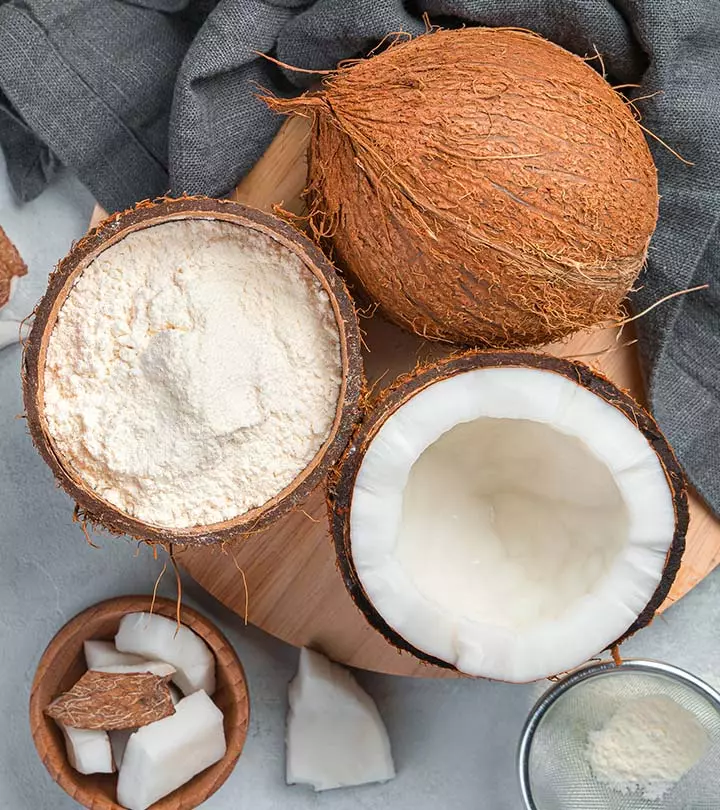


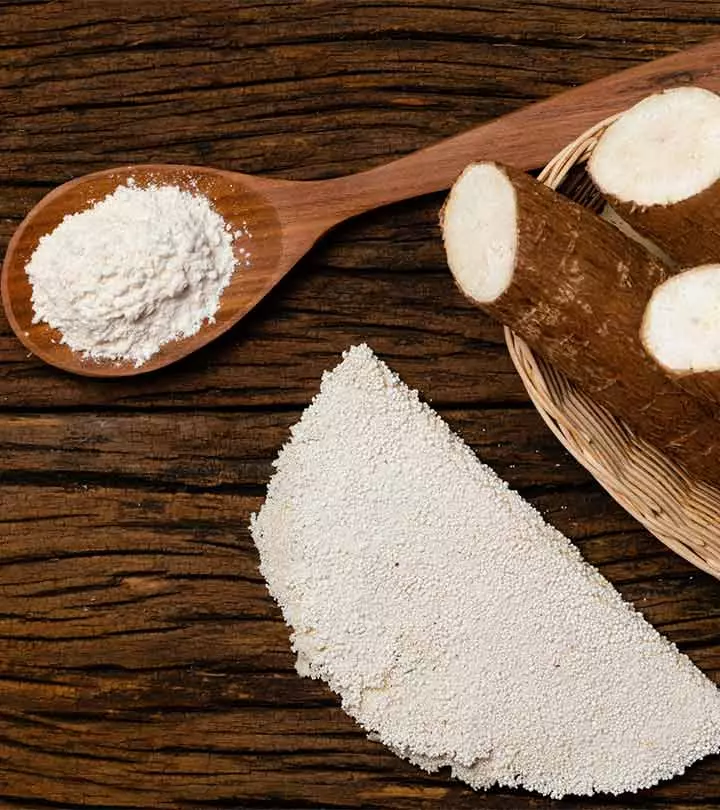


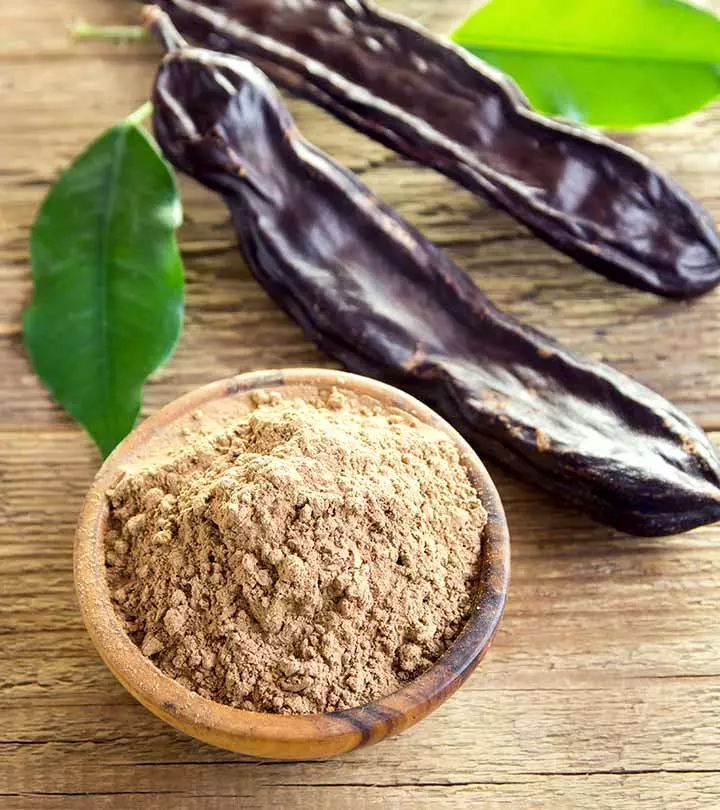









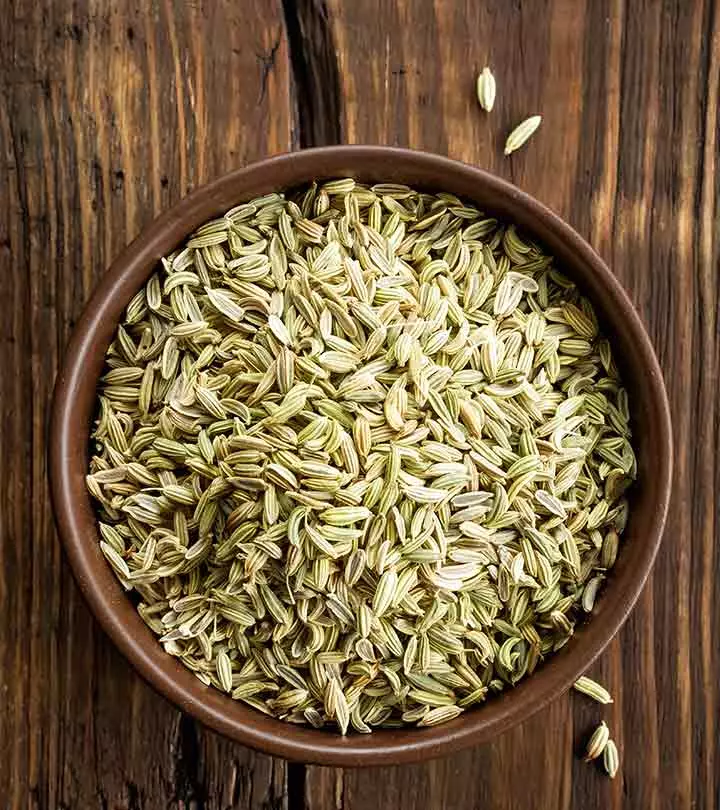




Community Experiences
Join the conversation and become a part of our empowering community! Share your stories, experiences, and insights to connect with other beauty, lifestyle, and health enthusiasts.